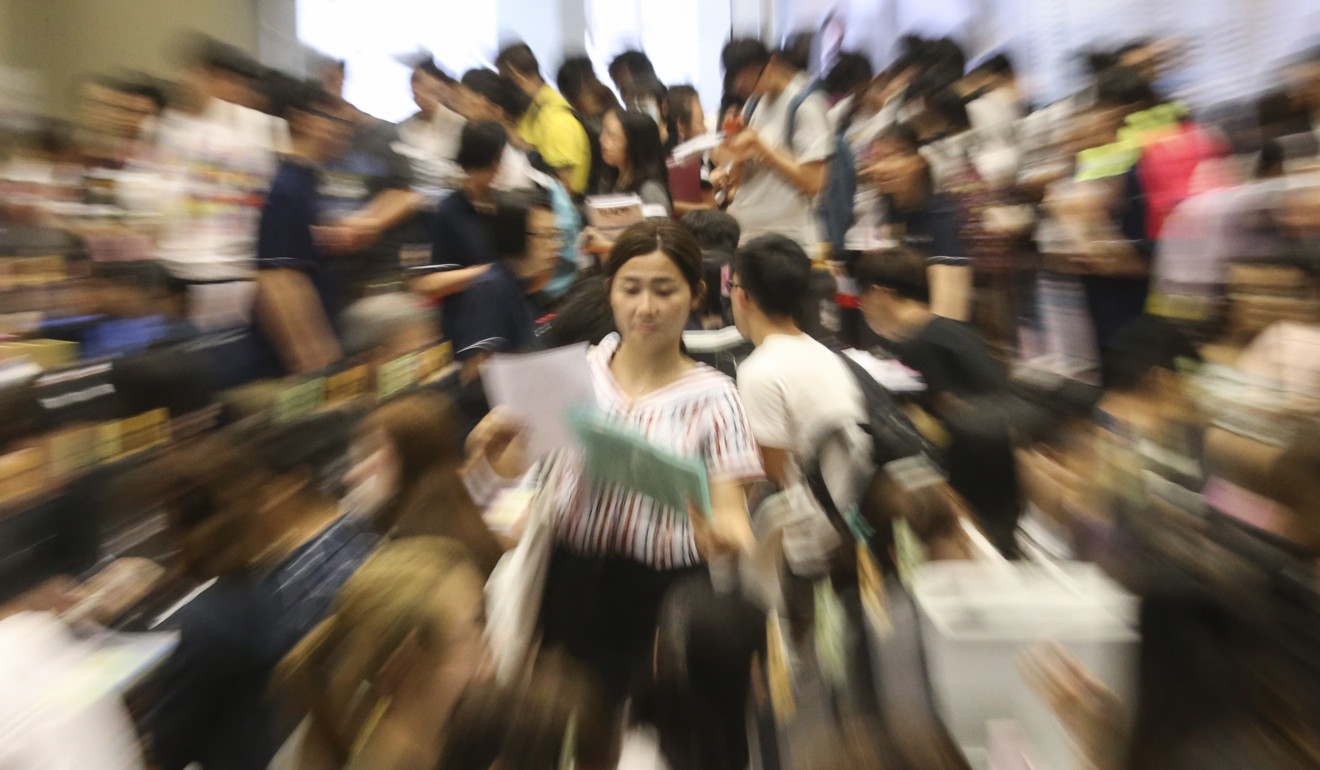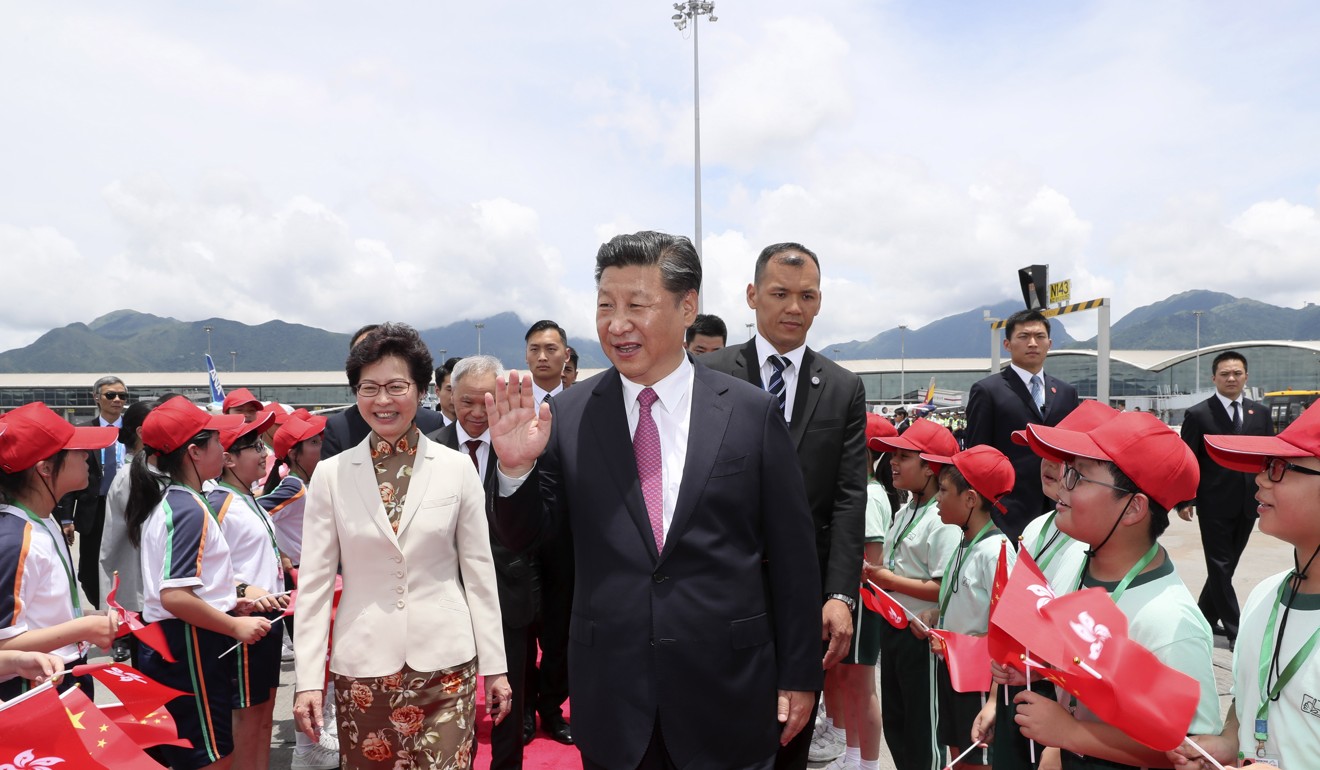
Beijing plan to give Hongkongers based on mainland same rights there raises questions
Tax arrangements, public benefits and home purchasing among areas in which more information sought
Beijing’s plan to give Hongkongers the same rights as their mainland Chinese counterparts when studying, living and working across the border will bring more choice but has raised questions over how attractive the offer is.
Work, study and play: will Hong Kong residents be tempted by equal rights in mainland China?
Some Hong Kong business leaders and local residents said more information on issues such as tax arrangements, public benefits and home buying was needed to determine whether the offer would be worthwhile or not.
Caesar Wong, of consulting firm RSM, said the benefits of the initiative might not materialise right away.

Certain key information that is not yet available would affect Hongkongers’ “appetite” to work or live on the mainland, Wong said.
“What will the income tax arrangement be for Hongkongers?” he asked as an example. “Will the mainland’s social security contribution requirements apply to Hongkongers? And will there be any restrictions on Hongkongers buying apartments for their own use?”
Hong Kong to get formal role in Beijing’s belt and road plan
The Xinhua report said students from the city could get a free education as well as more help in securing jobs, but those working or living on the mainland would have to wait longer for other benefits such as medical care.
In provinces and cities with a substantial number of Hongkongers, the education ministry would help local authorities roll out measures and regulations to “create conditions” that allowing students to receive free education, it said.

Macau residents would also be entitled to all the same privileges in provinces such as Guangdong, Fujian and Zhejiang, as well as Shanghai and Beijing.
Wong believed the plan was in part intended “to give younger people in Hong Kong a way out to their future” rather than going to another country. “With a larger supply of manpower, the plan could help retain and attract larger companies on the mainland,” he said.
Parents have concerns about the quality of public schools on the mainland
A senior Hong Kong business executive who spoke on condition of anonymity described his 10 years working with a multinational consumer product company in Beijing and Shanghai as relatively complicated and claimed his dealings were costly.
He explained that Hongkongers needed a working permit, and had mainland income tax obligations at a rate of between 35 and 50 per cent depending on salary amounts.
“This is only the beginning of a long journey,” he said. “There are other administrative procedures that are very tedious, even if your company does it for you. You also need to have regular medical check-ups, and register with local police.”
A human resources expert said the plan was unlikely to entice more Hongkongers to take their children along while on overseas job postings.
“Parents have concerns about the quality of public schools on the mainland, such as their English standards, and how to continue education back in Hong Kong after studying in these schools,” Alexa Chow Yee-ping, managing director of AMAC Human Resources Consultants, said.
Act on national education for the young, Hong Kong leader Carrie Lam told by Chinese minister on Beijing visit
She added that senior Hong Kong executives on the mainland usually received pay packages covering international school fees, so they would likely take their spouse and children along.
While the free education offer appeared to be a boon for cross-border pupils – namely, those born in Hong Kong to mainland parents but ineligible for public school on the mainland for lacking household registration numbers – at least one father said he would not consider it.

Yu Dejiang, a Beijing native residing in Shenzhen, said he preferred Hong Kong’s social welfare and health care system as well as the local environment. For this reason, he arranged for his Hong Kong-born son to start primary school in Tsing Yi next month even though the commute will exceed an hour.
“My son had a fever in Hong Kong a while back and we sent him to a public hospital, where the staff patiently communicated with us in Putonghua and in writing as we did not understand Cantonese,” he recalled. “It was only HK$100, unlike the time my son had a fever in Shenzhen and we took him to a hospital that ended up charging around 2,000 yuan.
Between 1995 and 2011, the number of Hong Kong residents working across the border grew from 122,300 to 175,100. At present, it is estimated 200,000 Hongkongers work on the mainland.
Additional reporting by Raymond Cheng


